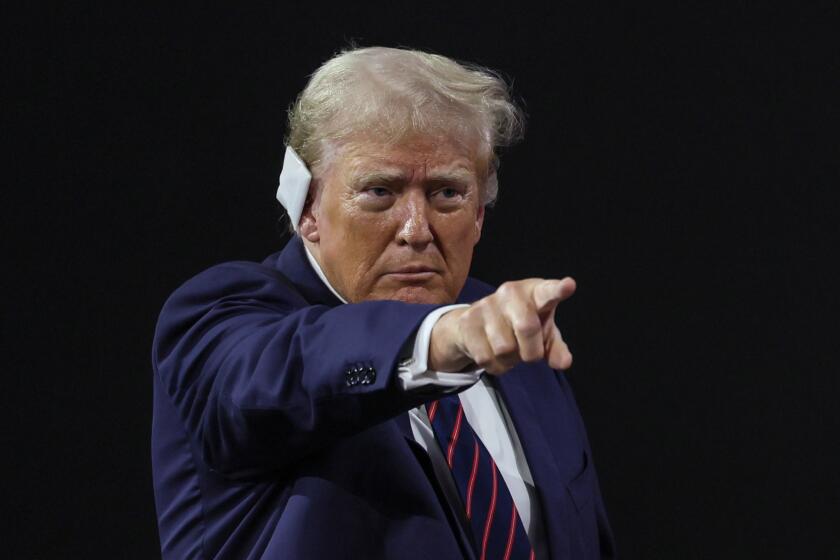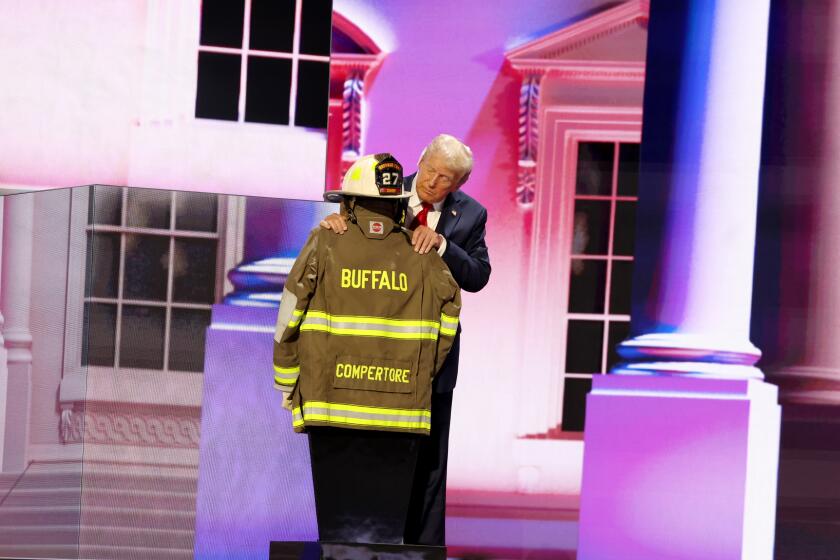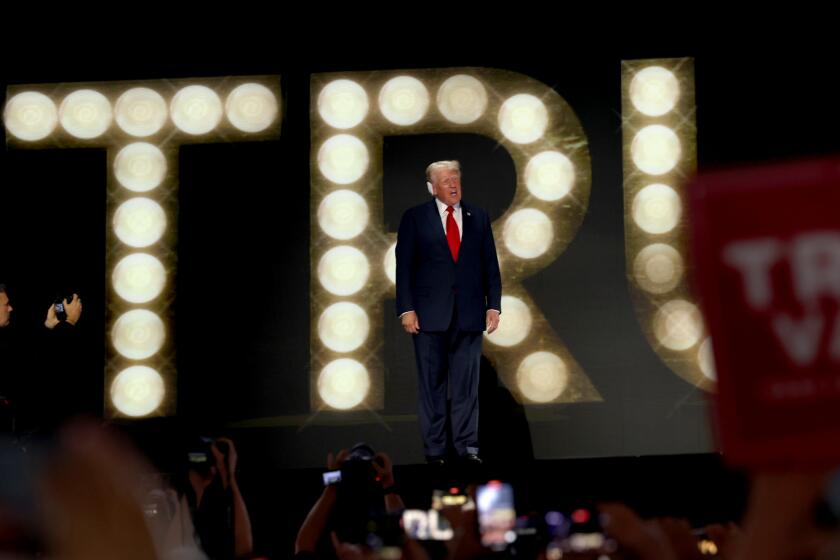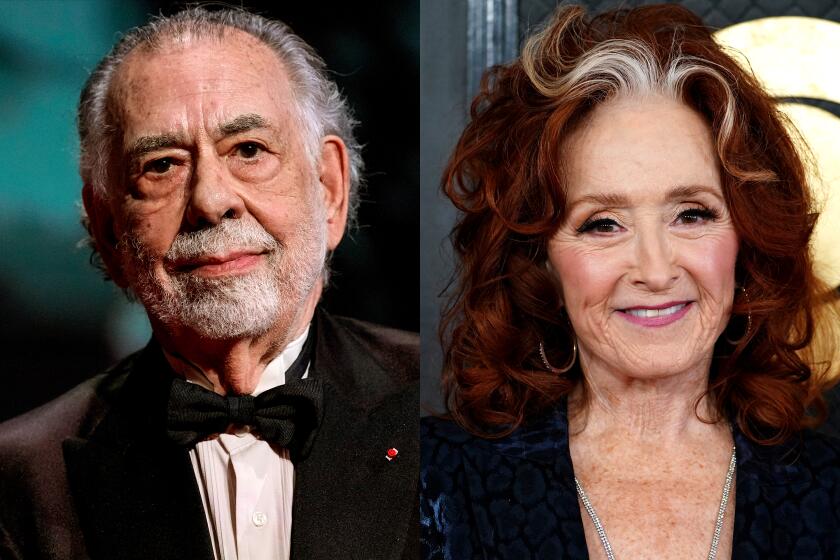Devil We Know in N. Korea May Be Better Than the Ones We Don’t
Few tears would be shed if North Korea’s ruler, Kim Jong Il, were deposed or if he just disappeared. But the Bush administration would be wise to consider that an even more hard-line ruling cadre could be waiting in the wings.
Korean leaders face a politics-rocking generation gap on both sides of the demilitarized zone. Youth usually connotes freedom. But the North’s leaders in waiting -- now in their late 40s and 50s -- are more isolated than their elders ever were, promising to be all the more hostile to the West.
Both my parents immigrated to the U.S. from Korea -- my mother born in the North, my father, the South. Koreans of their age who lived through the Korean War as young adults -- whether they now live in Los Angeles, Seoul or Pyongyang -- view Korea as one country. North Korea’s current leaders are of this generation, filtering these same sentiments through a very narrow lens. But compared with the next tier, those in power are globalist.
Virtually all of the North’s top leaders are older than North Korea itself. Most have revolutionary credentials as soldiers in the Korean War. Many have established relationships with counterparts in China and former Soviet bloc countries. They subscribe completely to an independent, self-reliant North for now. But through a sense of history, they can also be pragmatic. By contrast, the leadership in waiting has had relatively little international contact, coming of age late in the Cold War and in isolation.
North Korea’s colossal propaganda machine has worked wonders, instilling in this generation notions of a weak Western character and an outside world intent on destroying the North. This faction -- unlike their South Korean peers who were largely responsible for the South’s transition to prosperity and democracy -- has yet to make its mark. It is readily understandable that these privileged few feel compelled to prove themselves.
As a member of a high-level State Department delegation in 1999, I was introduced to a North Korean senior colonel in Pyongyang. During our conversation, this officer, in his 50s, blustered on about a single Korea and North Korean military might. This was to be expected. But what was unforgettable was the palpable disdain the colonel had for our group. He talked about his country’s ability to attack our hometowns if provoked.
This differed markedly with the older, more powerful Vice Marshal Cho Myong Nok, North Korea’s No. 2 man, who during a visit to Washington in October 2000 managed to combine tough talk with an apparently genuine desire for mutual accommodation and peace.
The colonel’s contemptuous manner confirmed stories I had heard of North Korea’s military officers and party officials -- the officials who are just below the top tier -- being more aggressive than their superiors. For this group, 50 years of Communist ranting arguably have evolved into a form of fundamentalism, North Korean-style: the idea of a unified Korea turned into sacred aspiration and armed conflict.
This commitment to “one Korea” reminds me of an uncle, once a high-ranking army officer in the South. On occasion he would declare that a South-North conflict was inevitable and that if the price for unification was hundreds of thousands of deaths, so be it.
To be sure, my uncle’s beliefs are far right by South Korean standards, but the sentiment exists in both countries.
Kim Jong Il runs the show. However, North Korea is not a monolith; there are differing views among vested interests and therefore Kim has had to methodically consolidate power. The old guard prevails; in line with Confucian tradition, the next tier defers for now.
The story of practical elders holding off ideological underlings is an ageless one. These divisions have profoundly affected South Korea and may soon deeply shape North Korea too.
If the Bush administration is serious about a North Korean regime change, it should be careful what it wishes for. What follows could be even worse.
Start your day right
Sign up for Essential California for news, features and recommendations from the L.A. Times and beyond in your inbox six days a week.
You may occasionally receive promotional content from the Los Angeles Times.



